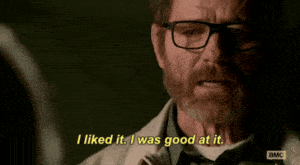Kevin O’Leary is a Canadian businessman who has had a ton of success in his career. He founded a software company, sold a self-storage business, launched a mutual fund company, and has appeared on numerous TV shows of which he’s most famous for his seat on the popular show Shark Tank where he evaluates entrepreneurial pitches alongside Mark Cuban and others.

He is known as a tough, self-made millionaire that many people look up to for inspiration and advice. A couple of weeks ago, O’Leary published quite a hot take on the ol’ Twitter machine:

As is typical on social media, there was plenty of righteous indignation at this tweet. I think every finance person I follow rushed to comment on how bad of a take it was.
While I don’t personally agree with the statement and believe that outlook makes for a rather hollow life, my initial reaction is I thought it was… refreshingly honest.
Maybe I’m being too cynical, but I think if you gave truth serum to every top-achiever and uber-successful person, most of them would say they share Kevin O’Leary’s sentiment but just don’t say anything because it’s socially unacceptable. For many, he simply said the quiet part out loud.
I was reminded of Walter White from Breaking Bad. Throughout the entire series, Walt justifies his less-than-pleasant actions by telling himself and anyone who would listen that everything he did was for his family. To give them a better life and to provide opportunities he never had. Towards the end of the show as he’s reconciling with his life, in a conversation with his wife he finally admits:
“I did it for me.
I liked it.
I was good at it.
It made me feel alive.”

The same day I read O’Leary’s tweet, I also came across an article from The New York Times about John Jaso, a professional baseball player who decided to leave the game before many thought he had to. Instead of locking in another multi-million dollar deal at the end of his last contract, Jaso chose to retire to the Caribbean where he would buy a boat and spend his days sailing.
In lieu of reaching for more money and success on a baseball field in view of thousands of admirers, he realized he was happiest out on the ocean. He said:
“Baseball set me up for life. I love it, and I respect it. But it was part of this culture of consumerism and overconsumption that began to weigh really heavily on me. Even when I retired, people said: ‘You might be walking away from millions of dollars!’ But I’d already made millions of dollars. Why do we always have to have more, more, more?”
It’s interesting to compare the priorities of these two people. For one, success and money is the ultimate goal. For the other, money and professional success were simply a means to an end. A tool to live the life he actually wanted.
My own personal values are far more aligned with John Jaso’s than Kevin O’Leary’s, but who am I to tell anyone what their definition of success should be? I do, however, think it’s important that everyone has their own definition of success.
Too many people treat their personal finances the same as corporate finances. While the purpose of corporate finance is to maximize earnings at all costs, personal finance seeks to maximize happiness and life satisfaction. It all depends on what you value.

“What matters most is that you achieve success and become free” is just one man’s definition of what he values most. The issue with that outlook is no matter how successful and rich you become, there will always be more success and more money to be had. In that sense, it’s a game that offers the illusion of a finish line right around the corner, but in reality, can never be won.
And that’s just fine for some people—if you truly enjoy the game, that’s great.
But there are many who get so caught up in trying to win a game they never even meant to play in the first place.
Thanks for reading!

